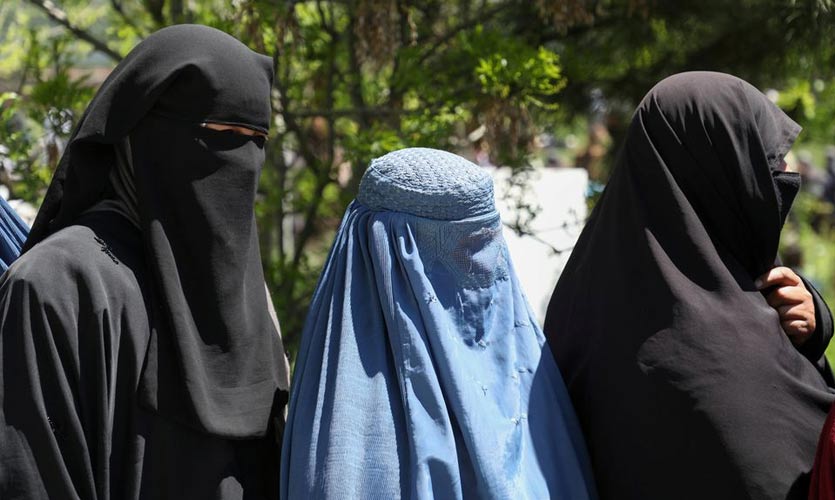The Taliban, on August 15, made their way to the presidential palace and successfully overthrew the democratic government, establishing its power over Afghanistan. The move came twenty years after the first government was elected in the country.
As the US and NATO forces departed, so did the hope of millions of Afghans for a stable and peaceful nation. As a result, it is the Afghan women who are dreading this new inescapable reality the most, and rightly so.
In July 2021, the UN reported that civilian deaths in Afghanistan had risen by almost 50 percent since the beginning of the year, with more women and children killed and wounded than in the first six months of any year since 2009. In another report, the UN’s refugee agency said that nearly 250,000 Afghans, 80 percent of whom are women and children, have fled their homes since the end of May amid fears that the Taliban would reimpose their misogynist and fundamentalist ideology on women.
Now, with the Taliban in full control of every established institution in the country, the future looks bleaker for Afghan women. There is a sense of dread regarding the return to their brutal 1996-2001 regime during which, women suffered persistent oppression and loss of freedom.
Previous Rule Of The Taliban
During their vicious rule in the 1990s, the Taliban imposed the Sharia law, a strict interpretation of Islamic law under which women could not work or attend school, had to cover their faces in public, and could not leave the house without a male ‘protector’, making them a prisoner in their own homes. There were brutal punishments for those breaking these laws, including public executions, flogging for showing skin in public, and stoning if accused of adultery.
Can A Change Be Expected?
The world has changed drastically in the last 20 years. The advent of technology and social media has radically changed our lives. But the Taliban being capable of change seems like a sceptical claim.
In 2020, America signed an accord with the Taliban stating that if the militant group agrees to sever all ties with the al-Qaeda and enter peace talks with the government, the US will withdraw all troops from Afghanistan. In these talks, the Taliban leaders asserted the wish to grant women’s rights according to Islam.
This soon became an idea and political promise they never intended to keep, when reports of the Taliban’s latest effort to force thousands of girls into sex slavery emerged in early July this year.
The issue of women’s rights is a priority only on paper in Afghanistan. It was made clear at the peace talks held between the Afghan government and the Taliban in Doha and Moscow early this year. In Moscow, only one woman, Habiba Sarabi, was on the 12-member delegation sent by the Afghan government, and only four were a part of the 21-person team in Doha. The Taliban, on the other hand, included no women in their negotiating team at either of the talks.
Patricia Gossman, the associate Asia director for Human Rights Watch told the New York Times, “Moscow — and Doha, as well, with its small number of women representatives — laid bare the thin veneer of support for genuine equality and the so-called post-2001 gains when it comes to who will decide the country’s future.”
Read more: Taliban Announces Its Victory In Afghanistan Following Ashraf Ghani’s Resignation
America’s Broken Promise
According to the New York Times, in the last two decades, the United States has spent more than $780 million to promote women’s rights in Afghanistan. The progress has been inconsistent in urban and rural areas, but women are certainly more empowered now than they were under the Taliban’s rule. They make 40 percent of all students in the country. They have joined the military and police, held political office and are an active part of the workforce.
The Afghan women now feel the most betrayed by the American government and their promise of gender equality. “I remember when Americans came and they said that they will not leave us alone, and that Afghanistan will be free of oppression, and will be free of war and women’s rights will be protected. Now it looks like it was just slogans,” Shahida Husain, an activist in Afghanistan’s southern Kandahar Province where the Taliban first rose and now control large stretches of territory, told the New York Times.
In a patriarchal country, whose women were already victims of gender discrimination and inequality, the return of a misogynist and extremist militant group in power is the nightmare they did nothing to deserve.
“All the time, women are the victims of men’s wars,” Raihana Azad, a member of Afghanistan’s Parliament, told CBS News. “But they will be the victims of their peace, too,” she added.










